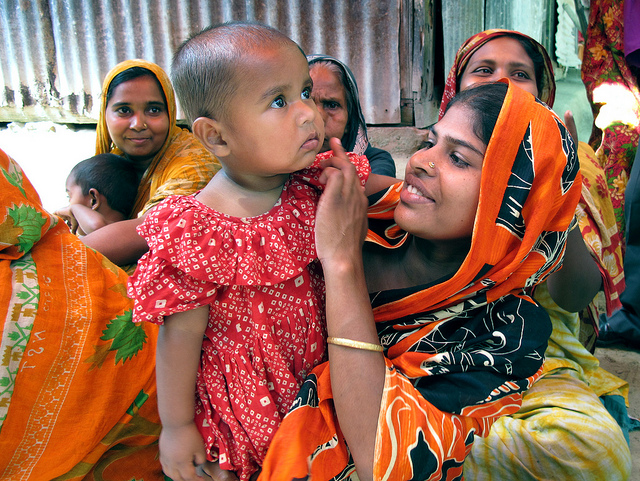The following post by Asma Lateef, Director of Bread for the World Institute, is a modified version of a story that originally was published on the Bread for the World Institute’s blog.
IFPRI’s Global Food Policy Report (GFPR) has become an annual reminder that global food security must remain very much at the top of the development agenda. This year’s report, the third, underscores that with more than 840 million people hungry, addressing hunger and malnutrition is a moral imperative. The report comes out just as the Open Working Group (OWG) on Sustainable Development Goals begins to discuss the Focus Areas for the post-2015 global development framework. Its recommendations are very timely to feed into the working group’s discussion, which starts March 31, and I hope they do.
The report captures the recent political momentum on nutrition and makes very clear that we can no longer talk about ending hunger without also addressing malnutrition. Undernutrition in the first 1,000 days between pregnancy and age 2 accounts for nearly half of all preventable deaths of children under 5. For children who survive, the consequences are life altering. They suffer irreversible physical and cognitive damage that affects their long-term health and productivity.
Stunting is the outward manifestation of the devastation caused by undernutrition. Today, there are 162 million children who are stunted. That is one in four children under 5. From the very beginning of their lives, their potential and their ability to lift themselves out of hunger and poverty is severely compromised. In addition, they are more likely to become overweight and obese as adults—the double burden of malnutrition. Two billion people are obese or overweight globally; the number of obese or overweight children under 5 has doubled since 1990 and is expected to double again by 2025. This is a global crisis that affects all countries.
Nutrition is included in the OWG’s Focus Areas along with Sustainable Agriculture and Food Security. The two indicators directly related to nutrition under consideration in this focus area are: ensuring year-round access by all to affordable, adequate, safe, and nutritious food; and ending child malnutrition and stunting. It is great to see these indicators make it through into the final recommendation from the OWG. In addition, given the multisectoral nature of malnutrition, the OWG should include indicators under the health, gender, WASH, and education focus areas. NGOs working on nutrition advocacy have developed a set of recommended goals, targets, and indicators. These build and expand on the World Health Assembly nutrition targets.
In addition, the GFPR calls for a data revolution. This is vital and should include data that is disaggregated by gender, income, age, race, and ethnicity. Since even short bouts of hunger and undernutrition can lead to irreversible damage in children, we need timely data and improved indicators of dietary quality and diversity, especially among women of reproductive age and young children.







